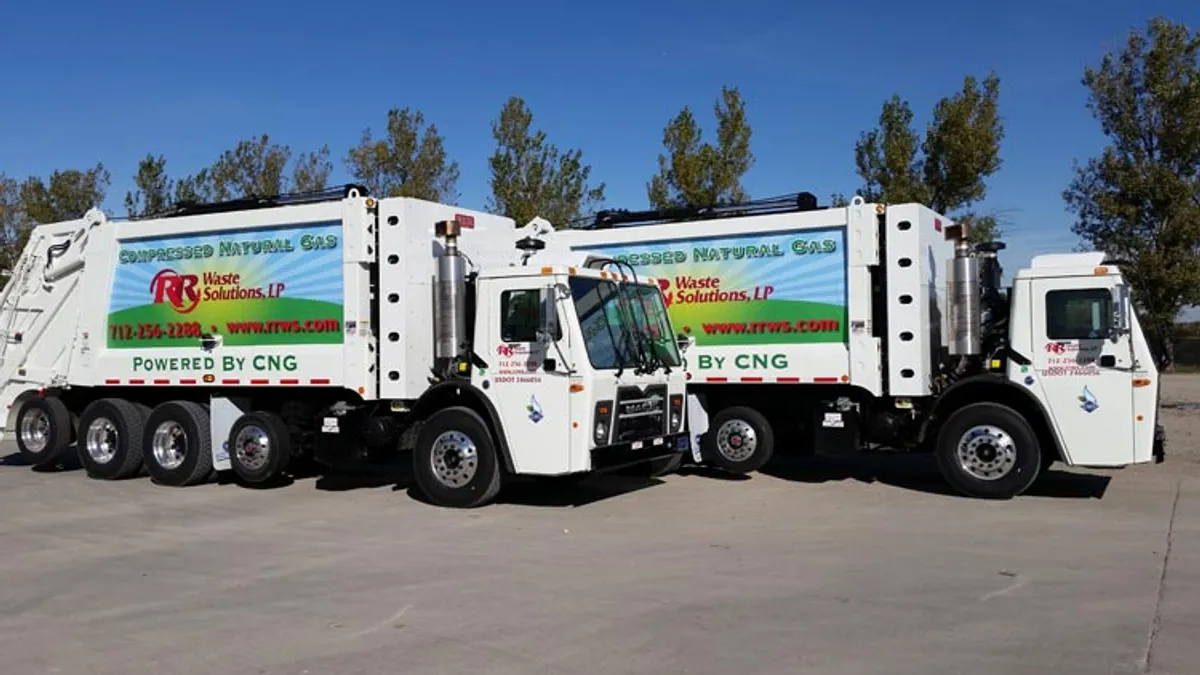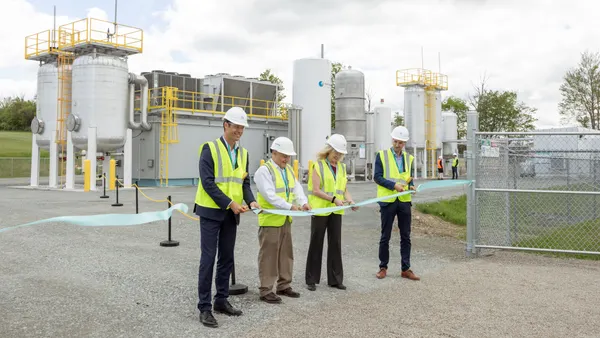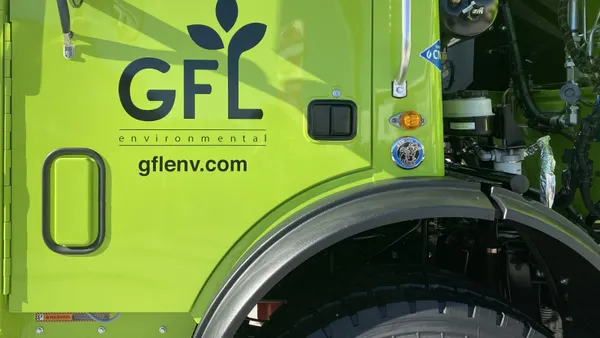Dive Brief:
- Texas-based Red River Waste Solutions could soon be sold in bankruptcy proceedings to a division of private equity firm Platform Capital for a proposed price of $12.6 million. This comes after a sale process, which the presiding bankruptcy judge called one of the longest he’d ever been involved in, attracted no other interest beyond Platform’s stalking horse bid.
- A hearing to consider the sale is scheduled for July 8. A range of creditors have been engaged in the process, including multiple financial institutions and equipment vendors, the Metropolitan Government of Nashville and Davidson County in Tennessee, the Solid Waste Disposal Authority of the City of Huntsville in Alabama, Santek Waste Services (a subsidiary of Republic Services) and others.
- Multiple local governments have struggled with Red River’s inconsistent service recently, leading Fort Wayne, Indiana, to terminate its contract. GFL Environmental will begin waste and recycling collection in July, under a new eight-year contract worth an estimated $11.1 million annually.
Dive Insight:
Red River's bankruptcy has garnered industry attention because of the resulting service problems, but also because there are few recent examples of a sizable waste company entering bankruptcy.
The company’s court filings cite the pandemic as a key issue, given “substantially increased waste volume” that led to “higher costs and unexpected wear and tear on trucks, employees, and supply-chain shortages in parts and repair-and-maintenance labor.” It then faced “a refusal by certain municipalities to increase prices paid for rising costs” and “substantial fines” due to not meeting service standards. A steep decline in C&D waste levels also affected its roll-off business. An initial October filing also references issues with insurance claims due to two “significant” crashes.
A court filing estimated Red River’s gross revenue declined from $42.3 million in 2019, to $33.4 million in 2020 and nearly $27 million as of Nov. 24, 2021. As of October, it reported an estimated 200 non-union employees and 184 trucks.
Red River entered into a $35 million loan in April 2020 to help maintain operations, but the resulting debt service payments reportedly affected fleet spending. As of October, the company had built up an approximately $2.6 million deferred maintenance backlog — including $1 million of work required by the U.S. Department of Transportation. It also received a $2.3 million federal loan in 2020, that has since been forgiven.
The unexpected increase in residential volumes during the pandemic’s onset have taken a financial toll on many haulers. Those that weren’t able to absorb losses or successfully renegotiate municipal contracts have struggled, but largely found ways to carry on. Representatives for Red River have not responded to requests for comment in recent weeks.
According to its filings and past profiles, the third-generation company's origins can be traced back to 1953 when Weldon Smith started a road building and waste collection business in Oklahoma after returning from World War II. The company grew via multiple contracts for military bases and other locations over the years. The company's current incarnation started in 1988, followed by a name change in 1993. It started expanding into municipal contracts around 2000 and had a recapitalization, led by Ironwood Capital and Patriot Capital, in 2014. It is currently run by Smith’s son Jim, as CEO, and grandson Weldon James, as president.
The company's footprint eventually grew to six states, including multiple acquisitions in Tennessee to take advantage of population growth around Nashville. It also later sold assets to Waste Connections in South Dakota and Lewis Clark Recycling & Disposal (owned by Waste Connections) in Iowa. According to a recent court filing, it currently holds collection contracts for municipalities in Alabama, Kentucky, Tennessee and Texas, as well as multiple federal contracts.
Two of Red River's most high-profile contracts, Nashville (awarded in 2004) and Fort Wayne (awarded in 2017), have experienced some of the biggest disruptions.
Nashville had to suspend recycling service for multiple months, provide assistance via public sector entity Metro Waste Services and engage in legal wrangling to ensure ongoing service for the estimated 125 routes handled by Red River. In February, Nashville brought on WM and Waste Pro via emergency contracts to help catch up for what Mayor John Cooper called “Red River’s failures.” In May, a representative for Nashville said an estimated 81% of the area’s residential waste collection was being handled by contractors. Red River had previously been responsible for the vast majority of that work.
In Fort Wayne, local leaders had to get a state law passed (signed by Gov. Eric Holcomb in February) to update bidding procedures for an early end to the contract after months of issues. They also agreed to pay Red River $1.9 million in March to keep the company’s local operations solvent through June 30. Since then, council members have been focused on potential ratepayer refunds and creating provisions to prevent similar problems part of a contract finalized in May.
Huntsville experienced issues with Red River earlier this year, requiring its local waste authority to “utilize city and county resources to collect approximately 361 tons of backlogged collections" in February and hire an outside company.
If Platform’s acquisition is approved, the next steps for Red River remain unclear. According to the Colorado-based firm’s website, its Platform Waste portfolio includes two small Illinois haulers — TNT Hometown Disposal and AAA Disposal — as well as a Canada-based recycler of lead acid batteries and e-scrap. Platform declined to comment.
Court filings indicate GFL was contacted about potentially acquiring Red River’s Fort Wayne assets last fall, but that hasn’t occurred. GFL did not respond to a request for comment.











